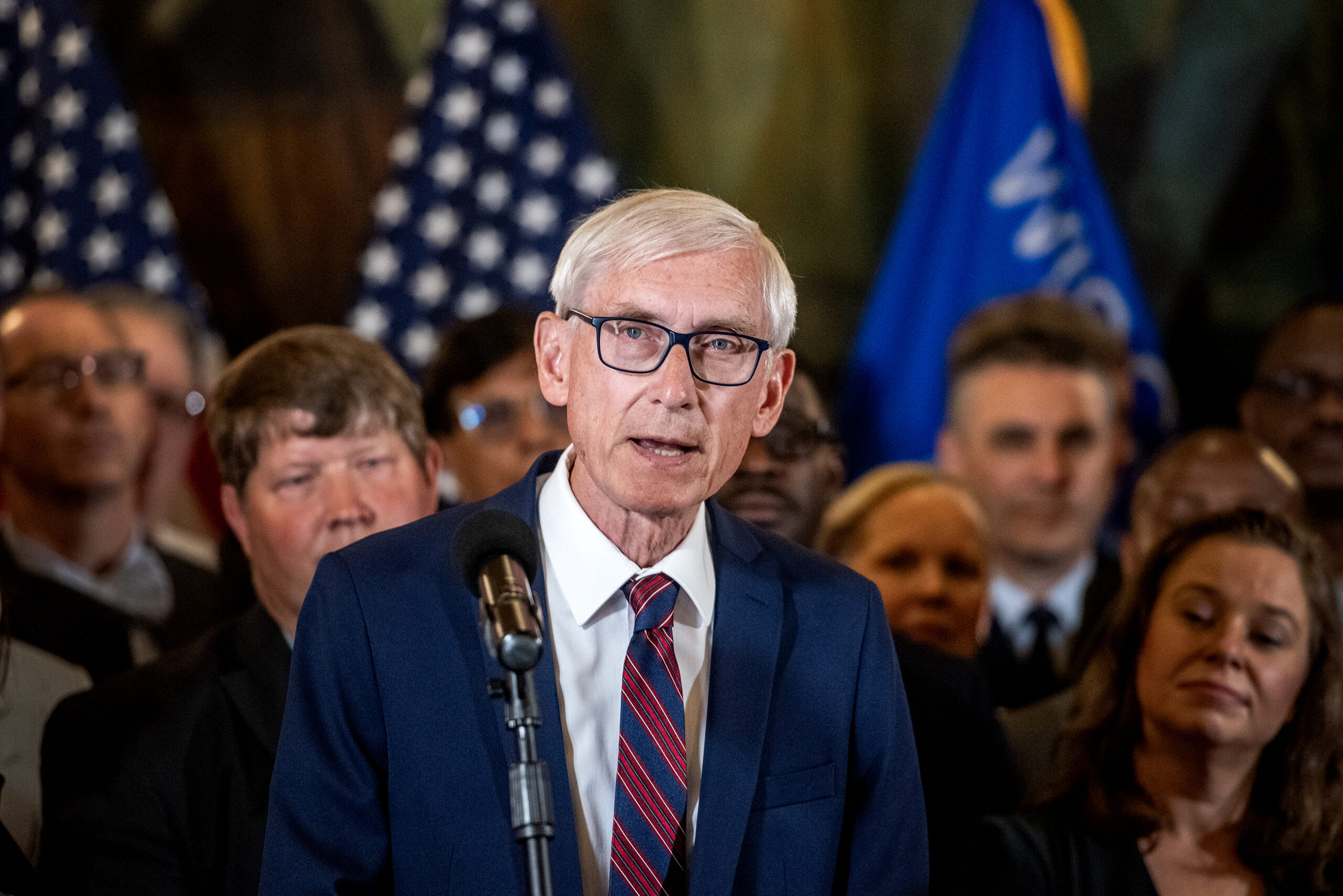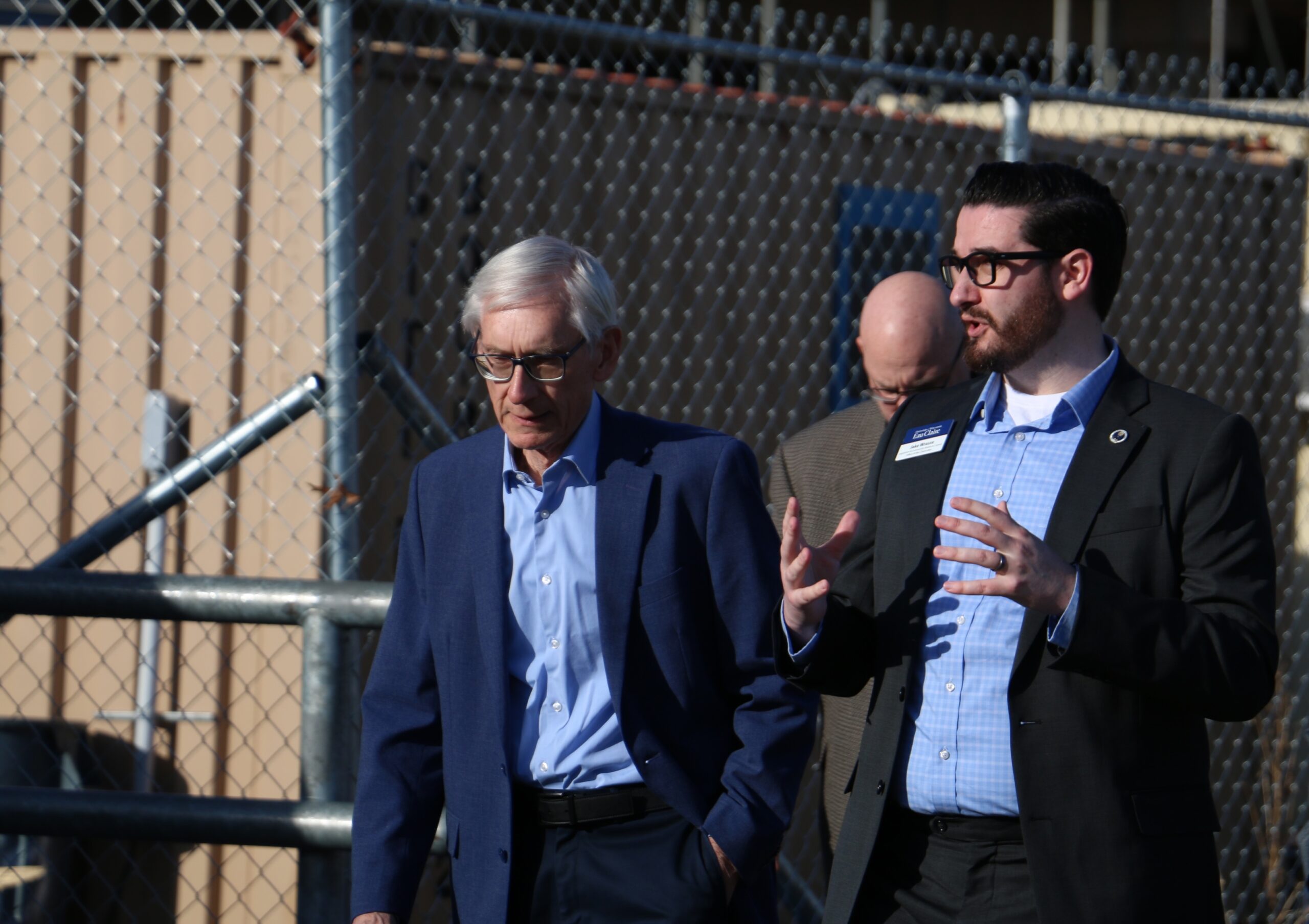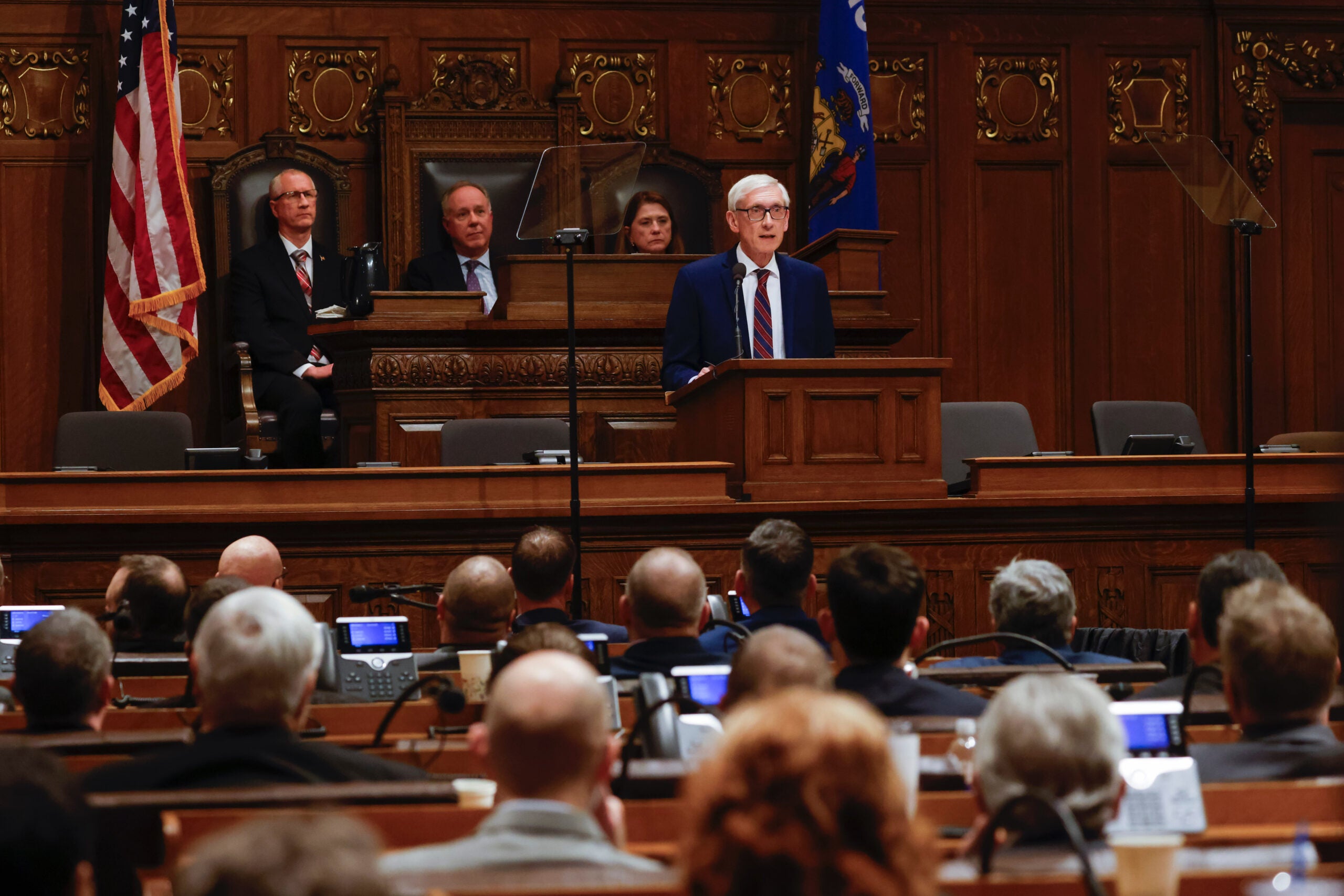One of the biggest questions headed into this year’s state budget debate was how Republican lawmakers and Gov. Tony Evers would handle Wisconsin’s record surplus. Now that the dust has mostly settled, there’s plenty of money left over.
Wisconsin began the two-year budget cycle with a projected surplus of roughly $7 billion in its general fund. Following the budget vetoes last week by Evers, the current projected surplus for the next budget is about $4 billion.
“There’s still a massive amount of money that the state has in reserve,” said Jason Stein, research director at the Wisconsin Policy Forum.
Stay informed on the latest news
Sign up for WPR’s email newsletter.
Neither side planned it that way, exactly.
The budget Evers presented to lawmakers in February would have spent more of the surplus on education, broadband, child care, paid family leave and a range of other government programs. That budget would have ended with gross balance of about $634 million.
The budget Republicans passed in June would have spent more of the surplus on a massive income tax cut, including for people who earn more than $300,000 per year. That budget would have left a similar balance of about $588 million.
In the end, Republicans gave Evers less than half of what he wanted for public schools and zeroed out other programs altogether. And Evers used his partial veto to reject a GOP income tax cut for the state’s top two brackets.
The end result leaves lawmakers and the governor with some of the same choices they faced when the budget debate began earlier this year. The trick is, they still have to agree.
In his veto message to lawmakers, Evers suggested that by eliminating the bulk of the GOP tax cut, he had preserved enough funding for a budget do-over.
“I am giving the Legislature a second chance,” Evers wrote. “I am using my broad, constitutional veto authority to ensure ample state resources are readily available for the Legislature to complete their work on this budget—to do the right thing, to rise to meet this moment of historic opportunity and responsibility, and to focus on passing real solutions for the urgent challenges facing our state.”
At least early on, that prospect seems unlikely.
“That is never going to happen,” said Assembly Speaker Robin Vos, R-Rochester, during an appearance last week on WISN-AM. “We’re not going to all of a sudden decide to spend the money.”
Vos indicated that Republicans would try to override Evers’ vetoes, a move he acknowledged was unlikely to succeed in the Assembly where the GOP is just short of a two-thirds supermajority. He also told conservative talk radio host Jay Weber that Republicans would send Evers standalone bills to cut taxes even if they’re destined for more vetoes.
“I think that’s exactly what we’re going to do,” Vos said.
Evers told the Milwaukee Journal-Sentinel last week that he won’t sign those tax cuts, either for the top bracket covering income above about $300,000, or the next bracket down covering income above around $28,000.
Stein said that even with that political tension, it’s still possible lawmakers and the governor could agree on at least some uses for the surplus, such as a deal to modernize the Milwaukee Brewers’ stadium or one-time tax rebates rather than permanent tax cuts.
“All of those things would be kind of sustainable uses of the balance we have,” Stein said.
Barring that, the billions left over from this year’s historic surplus could sit in the state’s general fund until the next budget debate gets underway in 2025.
Wisconsin Public Radio, © Copyright 2025, Board of Regents of the University of Wisconsin System and Wisconsin Educational Communications Board.





